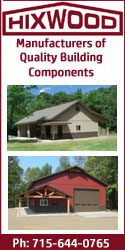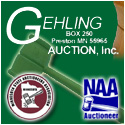 |
 |

|
|
|
Pennsylvania Ag News Headlines |
 |
Melting Snow: It's Stormwater Too!
Pennsylvania Ag Connection - 02/22/2018
When snow melts at your home it can create lots of problems that are both similar to spring rains and unique to winter weather.
Winter snow often puts a pristine white coat over every surface that makes for beautiful photos and lots of family fun. However, it's not long before the sun comes out to expose a host of issues created by the melting snow. Just like when rain falls the rest of the
year, melting snow turns into stormwater runoff. Heavy rains sweeping across your yard and driveway carry pollution and high volumes of water into our nearby streams, lakes, and other waterways. Melting snow does the same things. Both rain and snow melt
can seriously impair Pennsylvania's waters when they travel over the land in our developed communities. They can also cause significant property damage at your home.
In winter, melting snow actually causes a few unique stormwater problems. Because the ground is often frozen at the surface, melting snow can't infiltrate into the soil the way a light or moderate rain would be able to. So even a small amount of snow can cause
localized flooding on your property. When snow builds up over several small storm events without melting in between, it can turn into large winter storm impacts when it finally does melt -- leading to potential community wide flooding events. In both cases, that
standing and flowing water on the ground is picking up all kinds of debris, pollutants (especially de-icing salts and chemicals), and litter that will find their way into nearby streams.
Here are some tips for managing your property for winter stormwater this season:
- When piling your snow after shoveling and plowing, choose locations where the snow will have the most opportunity to infiltrate instead of becoming stormwater runoff. Pile your snow in areas where you don't usually have ponding in the spring rains, on
relatively flat areas, and away from sensitive areas like streams, ponds, and your private well if you have one.
- Clear your downspouts to allow melting roof snow to flow and not collect at your foundation.
- Make sure your nearest storm drains are clear. Do not pile snow on storm drains and make sure your neighborhood plow is not piling snow over the drains too. Clear away any snow that may have been kicked onto the drains by passing cars.
- Use de-icing chemicals and salts judiciously. Use what you need to make your walkways and driveways safe, but try to avoid spreading around sensitive areas like waterways and your private well.
- Postpone outdoor construction projects in winter, when you can't establish new vegetation to reduce soil loss and muddy runoff.
- Pay special attention to places that are eroding during snow melt, and make a plan to improve these areas in spring using plants that can slow and stop erosion, like native grasses and meadow plants or native trees and shrubs
Other Pennsylvania Headlines
|
|
 |


|
 |
|
Copyright © 2024 - Farms.com. All Rights Reserved. |
 |
|